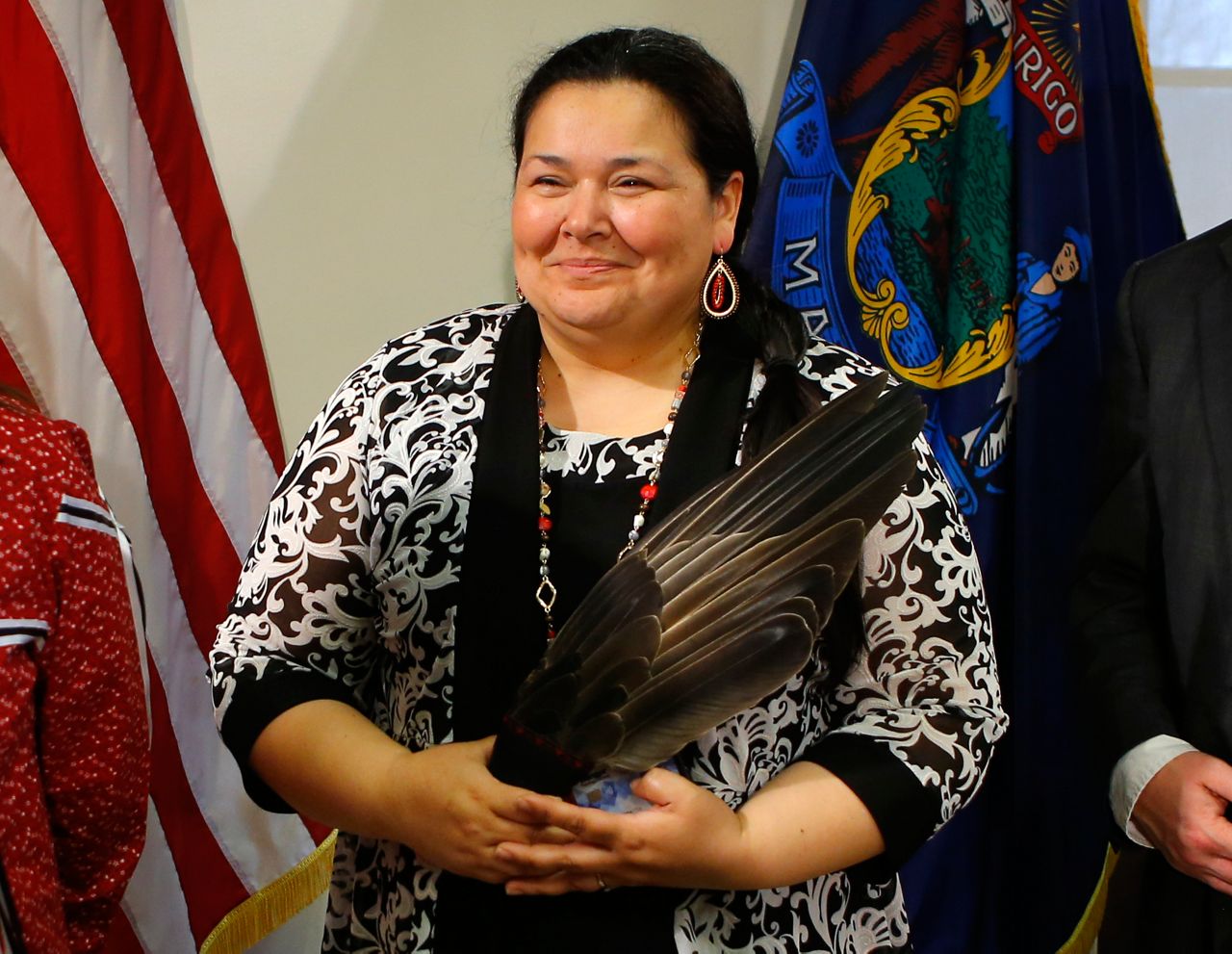Monday will mark the fourth anniversary since Columbus Day was recast as Indigenous Peoples’ Day in Maine. Activists like Maulian Dana said the change marks the beginning of great strides in relations between the state and Native American tribes and nations, but said more work needs to be done.
“It’s a mixed bag,” she said.
Dana, as tribal ambassador for the Penobscot Nation, was in 2019 one of the strongest advocates for changing the name of the holiday. In April of that year, Gov. Janet Mills signed a bill into law making the change permanent.
At the time, Dana told WCSH6, “We are now getting to the point where we can really look at some underlying issues that have caused problems in the relationship,” referring to the relationship between Maine’s four tribes — Mi’kmaq Nation, Houlton Band of Maliseet Indians, Passamaquoddy Tribe and Penobscot Nation — and the state government.
This week, Dana said there have been setbacks, most notably the failure of a tribal sovereignty bill earlier this year, but she still feels that changing the holiday was a starting point that has bolstered optimism among Maine’s tribal nations.
“I absolutely think it helped a great deal,” she said.
Work to draft the sovereignty bill included a task force, including tribal leaders, that had not been seen in the state before, Dana said, which regardless of the bill’s fate was in its own way a victory.
“We were able to amass a huge coalition of supporters,” she said.
For Dana, removing the annual homage to Christopher Columbus had a profound effect on the level of trust her people have for those outside their nations and tribes.
“When you celebrate genocide by having a Columbus Day holiday, I just don’t think you’re ever going to see those people as equals,” she said.
Dwayne Tomah, 57, of Perry, a member of the Passamaquoddy Tribe, is the director of the Sipayik Museum. As a lifelong Mainer, he remembered looking forward to the change that ultimately came in 2019.
“I was hoping they would change the methods under which they’d been operating. I’m just happy we’re able to come together and do the right thing,” he said.
Today, Tomah prefers to look at the relations between natives and non-natives as an opportunity for learning and communication, and like Dana he views the change from Columbus Day to Indigenous Peoples’ Day as a positive step.
“What it means to me is, people are being educated and that people are empathizing with the issue, and really getting an understanding of historical truth,” he said.
Dana noted that the change has led to a groundswell of activism, which by June of 2020 had been channeled into the creation of the Wabanaki Alliance, a nonprofit that serves as a coalition representing Maine’s four tribes.
Dana serves today as president of the alliance’s board of directors, and pointed to the alliance as a direct result of the change that started with the establishment of Indigenous Peoples’ Day.
“People are more active about equity now and staring down racism,” she said.
Tomah agreed that celebrating Indigenous Peoples’ Day represents progress, both for his people and non-Native Americans.
“We’re taking real small steps, and I think it’s just common understanding, and people are embracing this,” he said.



